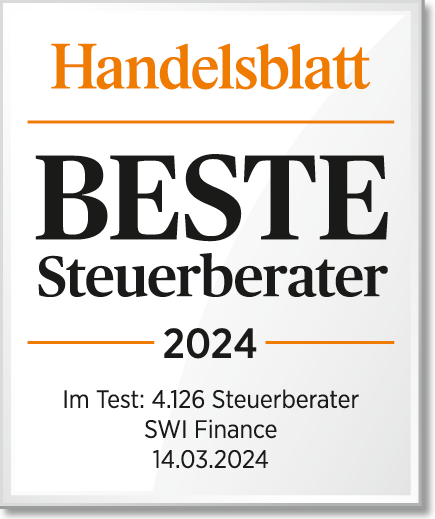- Companies
- International tax law
- Design & documentation of transfer prices
- Use of tax losses from home and abroad
- Annual financial statements - used strategically correctly
- Immigration step-up, a company moves to Germany
- Tax liability for sole proprietorships and partnerships
- Tax liability for Swiss corporations
- Permanent establishment
- Taxes in China
- International sales tax
- International employees
- Differences in labor law, tax law, social security law
- Working in the home office international
- Tax liability of employment income according to DTA
- Income tax for cross-border commuters, domicile abroad, without an employment contract
- Working in the employer's business premises
- Shares in partnerships and corporations
- Company formation/start-up
- Management consultancy
ServicesWith our work, we help our customers create long-term value and support them in growing responsibly and shaping digital change. We rely on data and the latest technologies in our services. - International tax law
- private customers
- Living & working abroad
- EU-Germany-Switzerland
- Taxation of the earned income of EU foreigners in Switzerland
- Tax liability in Switzerland
- Is it worth moving to Switzerland?
- Cross-border commuters between Germany and Switzerland
- 60-day rule in the DBA Germany-Switzerland
- Managerial staff Germany-Switzerland
- Income as a director
- Child benefit in cross-border cases
- Swiss AHV system / income tax
- Additional taxation between Germany and Switzerland
- Taxation in the digital world
- Life in China
- Purchase and financing of land, defense against enforcement
- Family & inheritance law, inheritance tax
IndustriesWith our work, we help our customers create long-term value and support them in growing responsibly and shaping digital change. We rely on data and the latest technologies in our services. - Country overview
CareerWe bring exceptional talents together to advance things together and make them significantly better.
- Rates
- office software
- Contact
- Blog
The iOS Procedure enables resident in the third country Online retailers (e.g. Switzerland, USA, Russia, China) for distance sales worth up to 150 euros to various EU countries the submission of just one sales tax report for all states centrally to one office. This means there is a clear demarcation from OSS-Procedure given that only for distance sales + services within the EU, but without sales limits was set up.
Online trading and digitally provided services are rapidly growing market segments. This leads to distortions of competition, especially in B2C business, when locally based providers pay their taxes but the digital sales are not subject to sales tax in the destination country. This is difficult in the EU because each country has its own VAT rates. One and the same item or service costs 19%, or 22%, 7% or no sales tax at all. It always depends on where the end customer receives the goods or services. That's why you shouldn't offer an item or service at the same gross final price in every country. Because in the end the seller only has the net price after deducting sales tax.
Before you can sell a product in the EU, it must either come from the EU or be imported into the EU. In addition to the customs duties that are standard in Europe, import sales taxes are also due when importing.
The previous exemption limit for goods under 22 euros regarding customs and import duties for shipments of goods no longer exists. There is still no duty charged for shipments of goods with a material value of less than 150 euros. Even if there are no customs duties, the courier services often charge a flat rate for the customs declaration. There is de facto no longer an exemption limit for import sales tax. It is levied if the tax is at least 1 euro. The amount of the import sales tax depends on the one hand on the item being imported and on the other hand on the tax rate of the country into which the import is made. The delivery route therefore influences the amount of import taxes. However, every entrepreneur can have the import sales tax refunded or offset against the sales taxes to be paid, so that in the end you only have to pay the customs fees.
There is still a rumor going around that you would save money if, for example, you imported goods from China into the EU via Rotterdam. That's not true, the opposite is true. It is true that you do not have to pay the import sales tax (but you cannot get it refunded or credited) if you hire a tax representative in the importing country. Of course this costs extra.
However, this doesn't work if you are based in the importing country or also make sales in the importing country (e.g. when importing via Rotterdam in the Netherlands). Immediately after customs clearance, the goods must also be transported to the actual EU destination country, so they should not be stored in the Netherlands (Section 5 Paragraph 1 No. UStG). Intra-Community shipping and receiving must be reported via INTRASTAT. Proof (signed consignment note, confirmed delivery receipt) must be available to the tax representative. Quite a lot of effort, but it is in vain if part of the goods are sold in the importing country.
If part of the goods are sold in the importing country, you are immediately in the situation where you have to pay the import sales tax and can offset it against the sales tax to be paid.
So if you want to sell goods from a third country such as China, the USA, the UK or Switzerland in as many EU countries as possible, it is best to register for VAT in Germany and then register as an OSS using the VAT ID provided. (artax completely done). With this setup, every domestic and foreign entrepreneur can do their sales tax in all EU states via a one-stop shop with a single declaration to be submitted and the difference between the sales tax to be paid and the import VAT as well as after deducting other amounts from other companies Invoiced input taxes are paid to a single point, the Federal Central Tax Office. The OSS can only be applied for uniformly for all EU countries. This procedure, which has been introduced since July 1, 2021, is much simpler and cheaper, as well as being absolutely legally secure.
B2B deliveries cannot be reported via the One Stop Shop. As before, B2B deliveries are to be taxed with local declarations in the country of origin or the country of import. However, registration in Germany helps.
The sale to entrepreneurs in Germany then takes place with an invoice with German VAT, which the recipient can immediately deduct as input tax. Sales to entrepreneurs in other EU countries are tax-free as intra-community deliveries. Sales to entrepreneurs in non-EU countries such as Switzerland or the UK are also not subject to sales tax. Nevertheless, the supplier is allowed to deduct the import sales tax in full. Since you can never know whether the customer is purchasing the goods for themselves or for their company, it is definitely worth applying for a VAT ID + OSS when selling to several EU countries.







